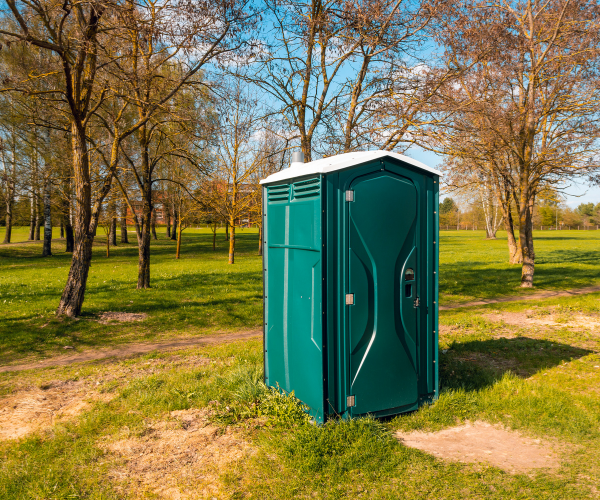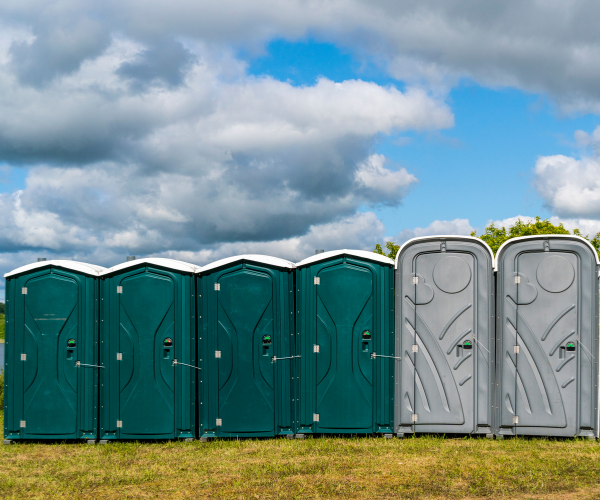Portable toilets offer substantial eco-friendly advantages, crucial for minimizing environmental impact while providing necessary amenities. First and foremost, these units significantly conserve water. Traditional toilets use between five and seven gallons per flush, while portable toilets utilize an efficient system that employs just a few ounces of chemical solution per use, saving vast amounts of water daily. This conservation is vital in arid regions or areas with water restrictions. Additionally, portable toilets help maintain public hygiene in wilderness and rural areas, preventing human waste from contaminating natural environments. Utilizing a self-contained system, they eliminate waste runoff and reduce pollution risks in fragile ecosystems. Also noteworthy is the reduction of sewage infrastructure strain in urban and suburban areas. By providing an alternative for events or during construction, portable toilets decrease the load on local treatment facilities, which can help minimize system overflows and malfunctions. This support for public infrastructure can result in increased efficiency and lower maintenance costs. These toilets are frequently constructed using recycled materials, further supporting sustainable practices. Many models are easily transportable, allowing providers to optimize logistical efficiency and reduce fossil fuel consumption. By consolidating deliveries and pickups, companies reduce emissions associated with equipment transportation. Finally, portable toilets encourage the responsible disposal of waste, guided by regulations that ensure environmentally friendly practices. Companies specializing in portable sanitation collaborate with certified waste management professionals to ensure proper treatment and disposal, aligning with industry best practices and environmental legislation.

Portable Toilet Rentals in Conway, Arkansas
Call today for a free quote (501) 406-0456
Portable Toilet
Fast, Easy, & 100% Free To Get Started
Two Decades of Service
With over 20 years of experience, our portable toilet company stands as a pillar of quality and trust in Conway. We take pride in our strong community ties and remain committed to delivering exceptional service that guarantees customer satisfaction.
Excellence in Every Detail
At our company, we prioritize quality service that exceeds expectations. Every rental unit is meticulously cleaned and maintained to ensure the highest standards of hygiene and sanitation, making us the preferred choice for portable toilet services in Conway.
Swift and Reliable Delivery
Our portable toilet services are designed for rapid and dependable delivery, ensuring that your needs are met precisely when required. Whether for events or construction projects, our prompt service means you can focus on your priorities without worry.
Convenient Portable Toilet Solutions in Conway, Arkansas
Call for a Free Quote Today
(501) 406-0456
For those in need of portable sanitation solutions in Conway, Arkansas, our company offers premier portable toilet rentals backed by years of dedication to quality service. As a locally owned and dependable business, we pride ourselves on our reliability and connection to the community. Whether you're organizing an event, such as a construction site, party, festival, or wedding, we ensure that your sanitation needs are met with our clean, durable units. Our commitment extends beyond just providing a product—we aim to deliver a hassle-free, satisfying experience tailored to your requirements. We serve not only Conway but also the surrounding areas, offering a comprehensive range of services that cater to any occasion. Trust us to be your go-to portable toilet provider, ensuring convenience and cleanliness every step of the way.


Standard Portable ToiletOur standard porta john rental units are durable and reliable for any commercial build site, housing development, public works project, or remodel job.Features include dome lighting, grated floors, and an “In-Use” locking mechanism for privacy and comfort.Regularly maintained, inspected, and cleaned by FusionSite at your location.

Wheelchair Accessible RestroomsDeveloped as an alternative to full ADA-compliant restrooms, the Liberty is a spacious, wheelchair-accessible unit that can also be promoted as a family-sized restroom.Includes a patented flat-floor system for easy wheelchair access and maneuverability.Handrails, paper holder, and rotary latch are designed for simple, intuitive end-user operation.

Portable SinkPortable hand washing stations are essential for keeping your work site sanitary and clean.Features hands-free foot pumps, liquid soap, and paper towels.Perfect for job sites without water hookups, these units can handle hundreds of washes between services.
We Proudly Serve
Standard Portable Toilets
Our Standard Portable Toilets provide essential sanitation solutions for Arkansas events and job sites with comfortable, hygienic facilities.
High Rise Portable Toilets
Conway's premier High Rise Portable Toilets offer convenient, elevated sanitation solutions for construction projects or events.
Restroom Trailers
Our Restroom Trailers in Conway serve Arkansas with spacious, luxury bathroom facilities for both intimate and large-scale events.
Roll off Dumpsters
Conway's Roll off Dumpsters provide efficient waste management solutions for events and construction through Arkansas Portable Toilets.
Septic Tank Cleaning
Expert Septic Tank Cleaning services from Arkansas Portable Toilets ensure optimal performance of your waste management systems.
Grease Trap Cleaning
Grease Trap Cleaning in Conway offers efficient maintenance solutions to keep your systems operating smoothly and compliant.
Fencing & Barricades
Professional Fencing & Barricades services throughout Arkansas by Arkansas Portable Toilets secure and organize event spaces efficiently.
Residential Storage
Safe, dependable Residential Storage in Conway, Arkansas ensures your belongings are protected and accessible at all times.
Conway Sanitation Solutions
Obtaining a portable toilet quote and arranging delivery has never been easier. Our user-friendly process facilitates quick and straightforward access to our services, ensuring that all your sanitation needs are met seamlessly. Begin by exploring our comprehensive website, where detailed information about product specifications and available units is readily accessible. Here, you'll also find forms strategically positioned at the top and bottom of each page, allowing for easy submission of essential details like name, phone number, and email. The 'Get A Quote' buttons, conveniently located throughout the site, connect you directly with our dedicated team, prepared to provide personalized assistance and ensure a tailored solution to meet your specific requirements. Once your request is submitted, our efficient system promptly processes your information, providing a detailed response and scheduling delivery that aligns with your timeline. We prioritize your convenience, with transparent pricing and no hidden fees, enabling straightforward budgeting for your event or project. Our team's deep expertise in the portable toilet industry ensures that all inquiries are handled with the utmost professionalism, guaranteeing satisfaction from initial contact to final setup. Choose us for a hassle-free rental experience that underscores our commitment to exceptional service in Conway.

Welcome to the heart of Conway, where our portable toilet services blend harmoniously with the area's natural charm and vibrant community life. With the picturesque beauty of Toad Suck Park nearby, our units are ideal for enhancing guest experiences at local events—whether it’s the lively Toad Suck Daze festival or private gatherings that celebrate the spirit of togetherness. Choosing our services means embracing convenience and reliability, as our portable toilets are strategically designed to support a multitude of occasions with ease. Whether it's a bustling fair in downtown Conway or an intimate wedding by Lake Conway, our clean and contemporary facilities stand ready to accommodate. Our commitment to Conway is reflected in our seamless service that uplifts any event with professional sanitation solutions. Experience the combination of local appeal with top-notch support, making our portable toilets the preferred choice for enhancing comfort and satisfaction for any occasion.
Why are we the best in Conway? Our service excellence is rooted in deep community connections and an unwavering commitment to customer satisfaction. From festivals to construction sites, our portable toilets are trusted for their durability and cleanliness, enhancing every local event. Our dedication to providing exceptional service ensures we remain a favorite choice for all your sanitation needs. Embrace the opportunity to work with a provider that values reliability as much as it does the community it serves. We tailor our offerings to suit Conway's unique events, ensuring a flawless experience that supports our area's vibrant lifestyle. With our services, expect dependable delivery times and solutions that are as convenient as they are comprehensive.
Our Reliable Portable Toilet Services in Conway offer swift and efficient delivery, setting the industry benchmark. We streamline our process to handle urgent requests, demonstrating our dedication to meeting your needs with accuracy and speed. Understanding the importance of punctuality, our dynamic logistics team diligently aligns with your event schedule. For both unexpected needs and planned events, we provide tailored solutions that prioritize your specific requirements. Rely on our expertise to navigate challenges and deliver exceptional service that seamlessly integrates into your plans, reinforcing our reputation as a dependable and effective service provider in Conway.
Learn More About Our Portable Toilets in Conway
To rent a portable toilet in Conway, start by visiting our website, where you'll find an intuitive process designed to streamline your experience. Our site offers detailed descriptions of available units, allowing you to select the perfect model for your specific needs. Once you're ready to proceed, simply navigate to the top or bottom of any page to find the comprehensive forms we've designed. Begin by filling out your first name, last name, phone number, and email to initiate the rental process. We recommend using the 'Get A Quote' buttons prominently displayed throughout our site. These buttons instantly connect you with our responsive team, ready to provide a tailored quote based on your input details. Our specialists will engage with you shortly after your submission, ensuring transparency and confirming the suitability of your choice. During this dialogue, you can discuss specific provisions, scheduling, and any additional services that may enhance your rental experience. By choosing us, you guarantee a smooth rental process characterized by clear communication and customer-focused solutions. Expect fast follow-up with pricing details, delivery schedules, and maintenance plans designed to fit your event or project timeline seamlessly.
Understanding the delivery timeframe for portable toilets is essential for seamless event planning or project management. Upon placing your order with us, the typical delivery window ranges from 24 to 48 hours, allowing us ample time to prepare and transport your selected units efficiently. For urgent requests, our team endeavors to accommodate last-minute needs without compromising the quality and reliability of our service. We recommend contacting us directly to discuss specific requirements, ensuring a precise delivery timeline aligned with your schedule. It's important to note that factors such as location, weather conditions, and order size may influence delivery times. Our logistics team navigates these variables meticulously, leveraging local expertise to overcome common challenges promptly. Each delivery is orchestrated with the utmost care, aiming for punctuality and thoroughness. In cases involving large-scale events or complex sites, proactive communication is encouraged. We offer free consultations that detail individual delivery strategies and unit placement analyses. Communication transparency is part of our service guarantee, enabling clients to plan with confidence and assurance.
Yes, we proudly service an extensive range of events and construction projects, ensuring comprehensive sanitation solutions are readily available for any occasion. Whether it's a bustling festival, a sporting event, or an elegant wedding, our diverse fleet of portable sanitation units is equipped to handle unique demands with ease. Offering more than just portable toilets, we provide luxury restroom trailers, ADA-compliant units, and portable sinks and hand sanitizer stations to elevate guest experience. Our roll-off dumpsters and fencing services supplement larger events with seamless waste management and crowd control solutions, enhancing safety and convenience. For construction projects, we cater to sites of all sizes, delivering robust equipment suitable for heavy-duty usage. From porta potties to holding tanks, our versatile services accommodate diverse operational needs. Our team's adaptability and precision ensure that all logistical aspects are addressed, making us your trusted partner for unparalleled sanitation solutions, no matter the scale or scope of your event or construction service needs.

